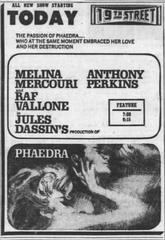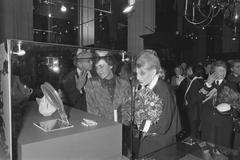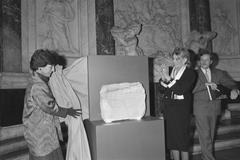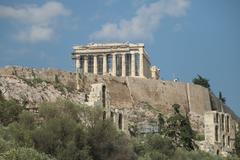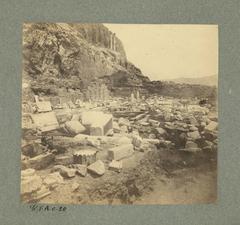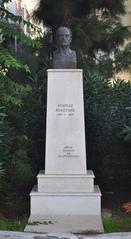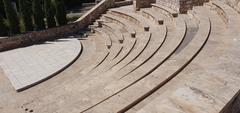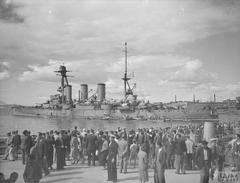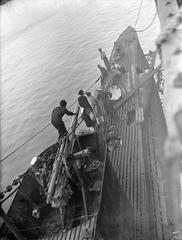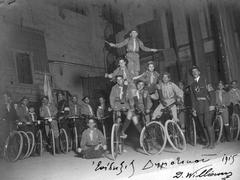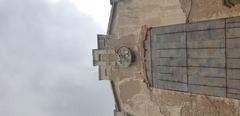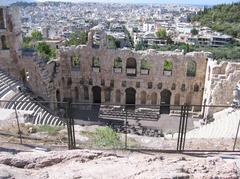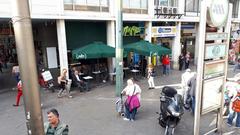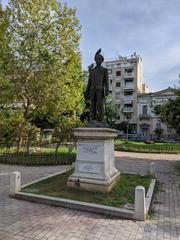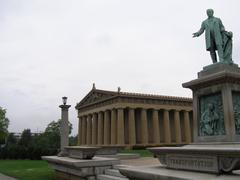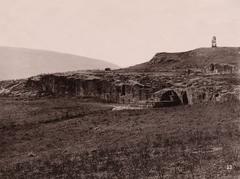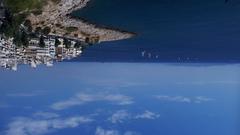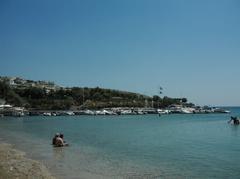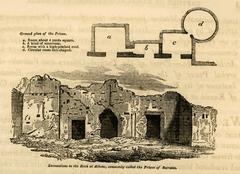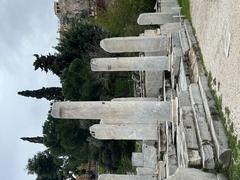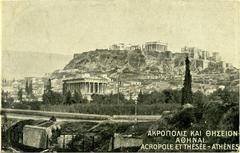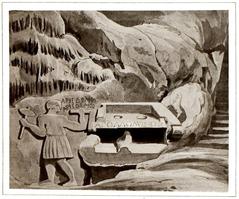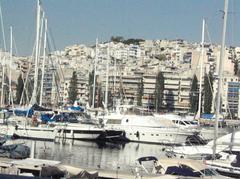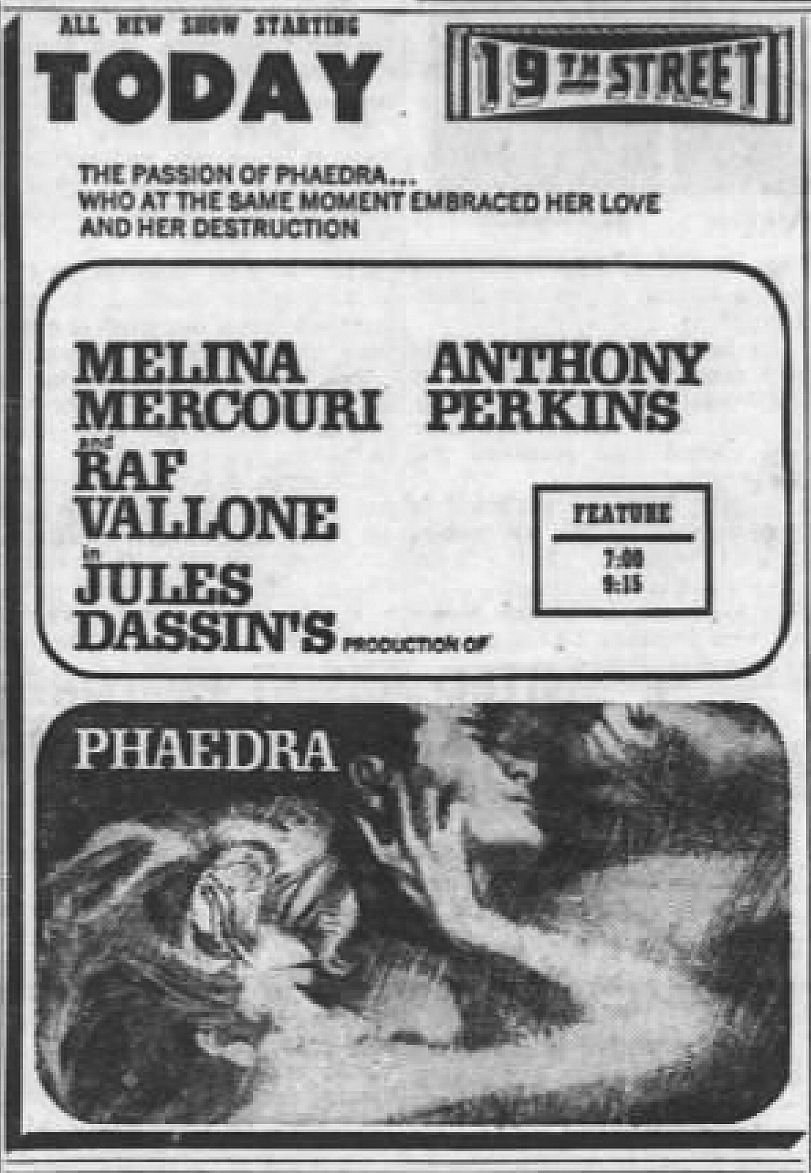
Visiting Μελίνα Μερκούρη Monument in Piraeus: Hours, Tickets, and Tips
Date: 19/07/2024
Introduction
The Μελίνα Μερκούρη Cultural Center, located in Piraeus, Greece, is a testament to the nation’s rich artistic and cultural heritage. Named after the esteemed Greek actress and politician Μελίνα Μερκούρη, the center stands as a vibrant hub for those eager to delve into Greek arts, history, and cultural preservation. Piraeus itself, a port city with roots tracing back to the early 5th century BCE, has long been integral to Athens’ economic and military prowess (Ancient History Encyclopedia). This guide provides an in-depth look at the center’s significance, practical visitor information, travel tips, and nearby attractions, ensuring a well-rounded and enriching experience for all visitors.
Table of Contents
- Introduction
- History and Significance
- Top Attractions and Activities in Piraeus, Greece
- Practical Tips for Visitors
- Conclusion
- FAQ
History and Significance
Early History of Piraeus
Piraeus, the port city of Athens, has a rich history dating back to ancient Greece. Established in the early 5th century BCE, it quickly became the primary port of Athens, playing a crucial role in the city’s economic and military power. The construction of the Long Walls, which connected Athens to Piraeus, further solidified its importance by ensuring a secure supply route to the sea, even during sieges (Ancient History Encyclopedia).
The Role of Μελίνα Μερκούρη in Greek Culture
Μελίνα Μερκούρη, born in 1920, was a prominent Greek actress, singer, and politician. Best known for her role in the film “Never on Sunday,” she later became a passionate advocate for cultural heritage and arts. As Greece’s Minister of Culture, she worked tirelessly to promote Greek culture and fought for the return of the Parthenon Marbles from the British Museum. Her legacy continues to inspire the cultural community in Greece and beyond.
Top Attractions and Activities in Piraeus, Greece
Archaeological Sites
Ancient Theatre of Zea
The Ancient Theatre of Zea, also known as the Theatre of Piraeus, is a significant archaeological site located near the port of Piraeus. This ancient theatre dates back to the 4th century BCE and was one of the largest theatres in ancient Greece, with a capacity of approximately 13,000 spectators. Visitors can explore the remnants of the theatre, including the orchestra, the skene (stage building), and the cavea (seating area). For visiting hours and ticket prices, visit the Hellenic Ministry of Culture and Sports.
Museums
Archaeological Museum of Piraeus
The Archaeological Museum of Piraeus houses an extensive collection of artifacts from the ancient city and its surroundings. The museum’s exhibits include sculptures, pottery, and other artifacts dating from the Mycenaean period to the Roman era. Highlights include the bronze statues of Apollo, Athena, and Artemis, which are considered masterpieces of ancient Greek art. For visiting hours and ticket prices, check the official website.
Hellenic Maritime Museum
Located near the Zea Marina, the Hellenic Maritime Museum is dedicated to Greece’s rich maritime history. The museum’s exhibits cover various aspects of Greek naval history, from ancient times to the modern era. Visitors can explore models of ancient ships, naval equipment, and maritime paintings. For visiting hours and ticket prices, visit the Hellenic Maritime Museum.
Cultural Attractions
Municipal Theatre of Piraeus
The Municipal Theatre of Piraeus is an architectural gem and a cultural hub in the city. Built in the late 19th century, the theatre is known for its neoclassical design and elegant interiors. It hosts a variety of performances, including plays, concerts, and dance shows. Check the official website for the latest performance schedule and ticket information.
Parks and Outdoor Activities
Piraeus Park
Piraeus Park, also known as Pasalimani Park, is a green oasis in the heart of the city. The park features walking paths, playgrounds, and picnic areas, making it an ideal spot for relaxation and recreation. Visitors can enjoy a leisurely stroll, have a picnic, or simply unwind amidst the lush greenery.
Zea Marina
Zea Marina, also known as Pasalimani, is one of the most picturesque marinas in Greece. It is a popular destination for yacht owners and sailing enthusiasts. The marina offers a range of facilities, including restaurants, cafes, and shops. Visitors can take a leisurely walk along the waterfront, enjoy a meal with a view, or even charter a boat for a day trip. For more information, visit the Zea Marina website.
Shopping and Dining
Piraeus Flea Market
The Piraeus Flea Market, located near the Piraeus railway station, is a bustling marketplace where visitors can find a variety of goods, from antiques and collectibles to clothing and accessories. The market is a great place to hunt for unique souvenirs and experience the local culture.
Mikrolimano
Mikrolimano, also known as Tourkolimano, is a charming harbor area known for its seafood restaurants and vibrant nightlife. The waterfront is lined with tavernas and cafes, offering fresh seafood and traditional Greek dishes. In the evening, the area comes alive with music and entertainment, making it a popular spot for dining and socializing.
Festivals and Events
Piraeus Festival
The Piraeus Festival is an annual cultural event that takes place in various venues across the city, including the Municipal Theatre and the Archaeological Museum. The festival features a diverse program of performances, including theatre, music, dance, and visual arts. For more information, visit the official festival website.
Maritime Week
Maritime Week is a celebration of Piraeus’s maritime heritage, held annually in June. The event includes a series of activities and exhibitions related to the sea and shipping industry. Highlights include ship tours, maritime exhibitions, and cultural performances. For more details, visit the Maritime Week website.
Practical Tips for Visitors
Getting Around
Piraeus is well-connected by public transportation, including buses, trams, and the metro. The Piraeus metro station is a major hub, providing easy access to Athens and other parts of the city. Taxis and ride-sharing services like Uber operate in the area. For those who prefer to explore on foot, many attractions are within walking distance of each other.
Best Time to Visit
The best time to visit Piraeus is during the spring (April to June) and autumn (September to October) when the weather is mild and pleasant. The summer months (July and August) can be hot and crowded but offer the opportunity to enjoy the city’s beaches and outdoor activities. Winter (December to February) is the off-season, with fewer tourists and cooler temperatures.
Safety and Health
Piraeus is generally a safe city for tourists, but it is always advisable to take standard precautions, such as keeping an eye on personal belongings and avoiding poorly lit areas at night. Tap water is safe to drink, and healthcare facilities are of a high standard. It is recommended to have travel insurance that covers medical expenses.
Conclusion
Visiting Μελίνα Μερκούρη in Piraeus offers an unparalleled opportunity to immerse oneself in Greek culture and history. From the significant archaeological sites and museums to the bustling parks, marinas, and vibrant dining scenes, Piraeus has something to offer every traveler. The city’s rich maritime heritage, celebrated through events like Maritime Week (Maritime Week website), and the annual Piraeus Festival (Piraeus Festival official website), further highlight its importance and charm. By following the tips and information provided in this guide, visitors can ensure a memorable and enjoyable trip, fully appreciating the cultural depth and historical significance of Μελίνα Μερκούρη and Piraeus.
FAQ
What are the visiting hours for the Ancient Theatre of Zea?
Visit the Hellenic Ministry of Culture and Sports for up-to-date visiting hours.
How much are tickets for the Archaeological Museum of Piraeus?
Check the official website for the latest ticket prices.
Is Piraeus safe for tourists?
Yes, Piraeus is generally safe, but it’s always good to take standard precautions.
